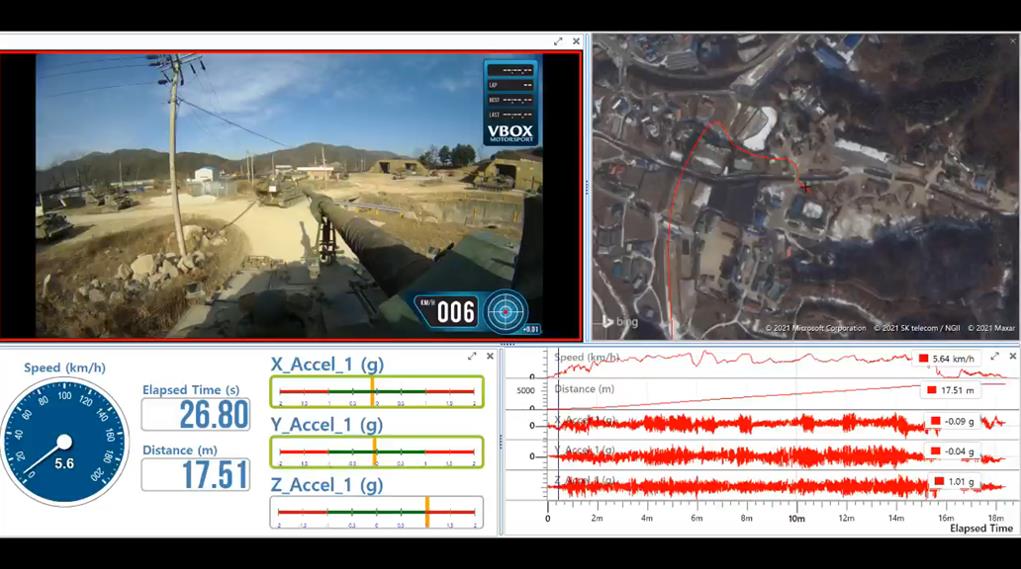Feasibility and foundational elements of CBM+ technology application in weapon systems
DOI:
https://doi.org/10.37944/jams.v7i2.243Keywords:
weapon system, condition-based maintenance plus (CBM ), sustainment, sensor dataAbstract
The maintenance strategies of weapon systems have evolved from corrective maintenance post-failure to time-based preventive maintenance, driven by the growing adoption of diagnostic technologies and data utilization. Currently, there is a transition to Condition-Based Maintenance (CBM) and, where applicable, Condition-Based Maintenance Plus (CBM+). This study investigated the feasibility of applying CBM+ technology using sensor data from weapon systems and explored methods for implementing the related foundational elements. First, the feasibility of CBM+ technology was confirmed by integrating data collection devices into the engine components of selected weapon systems, enabling sensor data collection and monitoring. Second, empirical evidence was gathered on the foundational elements necessary for the broader adoption of CBM+ technology. Practical application methods were proposed based on this evidence, including criteria for implementing CBM+ technology in major operational weapon systems, estimation of sensor data capacity, network methods for data transmission and collection, and the standardization of sensor data. The study’s findings are expected to provide reference points for selecting target weapon systems for the development and application of CBM+ technology, as well as outline essential foundational elements, such as security, networking, and data standardization, critical for leveraging related technologies.
Metrics
References
Endharta, A. J., Kim, Y. S., Kim, J. W., Cho, I. H., & Park, Y. K. (2023). Study on Effectiveness of CBM+ in Weapons Systems through RAM-C Analysis. Journal of the Korea Academia-Industrial cooperation Society, 24(9), 249-256. https://doi.org/10.5762/KAIS.2023. 24.9.249
Jo, G. S. (2021). A Study on the Depot Maintenance Effects of CBM+ Model Application for Transmission in Tracked Vehicle with Missile System. [Doctoral dissertation, Daejeon University].
Jung, S. P., & Yu, D. H. (2023). Prediction of Vehicle Engine Oil Viscosity Using OBDII Signal. International Journal of Automotive Technology, 24(2), 595-602. https://doi.org/10.1007/s12239-023-0050-5
Kim, D. H., Kang, S. W., Lee, J. H., Nam, K. M., Seong, S. H., & Lee, H. J. (2021). A Study on Applicability of Predictive Maintenance and Vibration Data Analysis by Fast Fourier Transform into Major Equipment of Submarine. Journal of the KNST, 4(1), 014-021. https://doi.org/10.31818/JKNST.2021.03.4.1.14
Kim, D., & Bae, K. (2023). Analysis of future defense policy priorities with AHP. Journal of Advances in Military Studies, 6(1), 99-118. https://doi.org/10.37944/jams.v6i1.184
Kim, G. Y., Hwang, J. K., Im, Y. K., & Ha, S. W. (2019). Roadmap Configuration for Technical Elements Acquisition of Military Fixed Wing Aircraft Parts PHM and Verification of Parts Selection Phase. Journal of The Korean Society for Aeronautical and Space Sciences, 47(9), 665-677. https://doi.org/10.5139/JKSAS.2019.47.9.665
Kim, J. D., Choi, J. H., & Park, H. S. (2022). A study on Forecasting Initial Provisioning based on Machine-Learning. Journal of Korea Technology Innovation Society, 25(3), 477-493. https://doi.org/10.35978/jktis.2022.6.25.3.477
Kim, J. M., Sin, T. H., & Lee, S. H. (2017). Measurement of the Engine Oil Deterioration of the Diesel Vehicle Using the Engine Oil Level Gauge. Transactions of Korean Soceity of Automotive Engineers, 25(1), 60-65. https://doi.org/10.7467/KSAE.2017.25.1.060
Kim, J. Y., Shim, H. S., Son, J. S., & Hwang, Y. Y. (2023). A Study on the Metadata Schema for the Collection of Sensor Data in Weapon Systems. Journal of Internet Computing and Services, 24(6), 161-169. https://doi.org/10.7472/jksii.2023.24.6.161
Kim, J., Kang, D., & Kang, B. (2022). Instrument development for measuring determinants in defense R&D policy. Journal of Advances in Military Studies, 5(3), 43-65. https://doi.org/10.37944/jams.v5i3.171
Kim, S. G. (2023). Analysis of the current status of development of core technologies for defense AI and consideration of development plans. Journal of Korea Academia-Industrial cooperation Society, 24(7), 433-442. https://doi.org/10.5762/KAIS.2023.24.7.433
Kwon, C., Lee, S. S., & Kim, J. M. (2012). The Calculation Model of Condition Based on Depot Maintenance Cycles. Journal of the Korea Association of Defense Industry Studies, 19(1), 1-21. UCI : G704-SER000001543.2012.19.1.004
Lee, S. W., Lee, S. U., Park, G. J., & Hur, J. W. (2024). A Study on the Procedures for the Application of Korean Weapon System Condition Based Maintenance(CBM+). Journal of Korea Academia-Industrial cooperation Society, 25(5), 365-372. https://doi.org/10.5762/KAIS.2024.25.5.365
Oh, K. W., Baek, C. H., Lee, K. H., & Lee, H. M. (2016). Research on Activation Plan of Condition Based Maintenance for Naval Weapons System. 2016 The Society for Aerospace System Engineering (SASE) Spring Conference.
Oh, K. W., Hwang, J. H., Kwon, B. W., & Shin, I. S. (2023). A Study on Quality of Maintenance of Marine Unmanned Systems Considering Total Life Cycle. Journal of the Korea Society for Naval Science and technology, 6(4), 437-445. https://doi.org/10.31818/JKNST.2023.12.6.4.437
Park, J. P. (2024). Analysis of factors causing changes in defense reform and tasks and prospects of “Defense Innovation 4.0”. Journal of Korea Maritime Security, 7(1), 61-84. https://doi.org/10.23270/kmsr.2024.7.1.003
Park, J. Y., & Jeong, Y. S. (2023). A Study on the Application of CBM+ FOR Next Generation UAV. The Korean Society for Aeronautical and Space Sciences (KSAS) 2023 Spring Conference.
Shin, B. C. (2022.). A Study on the Application Methodology of CBM+ in the Early Stage of Design: Focused on the Case of Armored Vehicles. [Doctoral dissertation, Kumoh National Institute of Technology].
Yu, D. H., & Jung, S. P. (2020). How to predict engine oil and battery life using IoT. 2020 Transactions of KSAE Conference.

Downloads
Published
How to Cite
Issue
Section
License
Copyright (c) 2024 Journal of Advances in Military Studies

This work is licensed under a Creative Commons Attribution 4.0 International License.

This work is licensed under a Creative Commons Attribution 4.0 International License.

이 저작물은 크리에이티브 커먼즈 저작자표시 4.0 국제 라이선스에 따라 이용할 수 있습니다.






